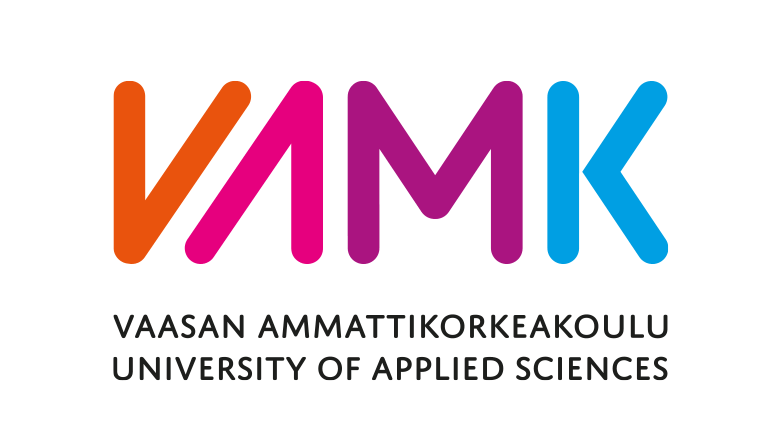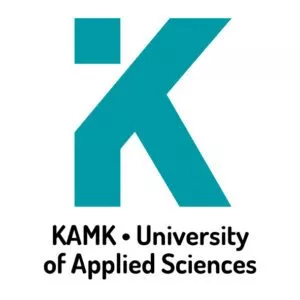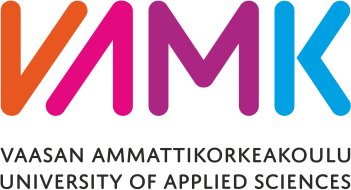

Project information:
Official name of the project: Osaamista energiamurroksen johtamiseen - Competence for energy transition management
Duration of the project: 1.1.2024 - 31.12.2026
Project coordinator: VAMK
Project partners: KAMK, TAMK
Funding: ESR+,
Budget: 396 979 €
Contact person in VAMK:
Toni Lustila, Senior Lecturer (School of Technology)
tel. +358 207 663 337, toni.lustila@vamk.fi
Project description
The project will develop new training solutions for the renewable electricity sector. The most important of these solutions is a 60-credits degree course leading to a Master of Science in Engineering, entitled “Managing the Energy Transition”. In addition, smaller modules will be developed for target groups of competences who wish to complement their skills. This will ensure the building of pathways for continuous learning. In order to provide a wide range of training for people with different backgrounds, the training will also be built into a 30-credit module that can be integrated into YAMK degrees in other fields. The design and implementation of the training solutions will be carried out in close cooperation between Kajaani, Tampere and Vaasa Universities of Applied Sciences, which will enable the project to have a broad regional impact and to benefit from the specific expertise of the universities. In addition, cooperation with companies and universities is important in the project. There is currently no similar training package available in Finland.
In addition to the training package, the project will build a national and international cooperation network to share knowledge and experience on current and future issues and phenomena and best practices in the renewable electricity sector. The project will also design and implement a digital learning game on wind energy, which will be used in the project’s training offer. The digital learning game will diversify pedagogical solutions in the sector and provide a motivating and engaging learning experience for its users.
The needs of the renewable electricity sector will be addressed through close and systematic networking. The training package and other project activities will be designed and implemented in interaction with the organisations in the sector. A transnational steering group will be set up to steer the project.
Goals
The aim of the project is to enable the rapid transition of electricity production from emission-generating (combustion-based) to emission-free solutions (mainly wind and solar) by training the necessary skills. The aim of the project is to design and implement a training package on energy transition management, using a variety of teaching methods and the specific expertise of the co-organisers.
The aim of the training package to be developed in the project is to enable the transition of Finnish electricity production to renewable forms of energy by training experts with a strong knowledge of the development of electricity generation technologies (wind, solar and electricity storage) in companies and the public sector, renewable electricity system, today’s electricity business, planning and management of major international development projects, management of a renewable energy plant and management of environmental and social impact issues in the sector. The training will be designed and delivered in such a way as to provide a good basis for project planning tasks in renewable energy projects, project development and planning management, consultancy and training in the field, and management of renewable energy production activities during production.
The training package, which is offered both as a degree programme and through open university courses, consists of modules covering different aspects of electricity generation and a 60-credit engineering (YAMK) degree programme and a summer school in wind energy. The aim of the project is to design the above training courses, produce the necessary training materials, develop a digital learning game on wind energy for the training needs and pilot the training package with a total of 90 students.
The second objective is international and national networking on energy transition management to ensure and share up-to-date knowledge. In this respect, the concrete objectives are to establish permanent partnerships with foreign universities or research institutes, as well as with key domestic cooperation networks and leading companies in the field. As regards the long-term exploitation of the results of the project, the aim is that after the end of the project, training activities will continue as part of the core activities of the implementing universities of applied sciences, extending training from engineering to other fields.
The third objective of the project is to design and implement a digital learning game on wind energy, which will be designed in cooperation with the industry and used in the project’s training package. The aim of the digital learning game is to diversify pedagogical solutions in the sector and provide a motivating and engaging learning experience for its users.
Results
The results of work package 1 (Training in energy transition management):
- Detailed implementation plan for the Energy Disaster Management Engineer (YAMK) degree programme
- Training materials for the Energy Crisis Management – Engineer (YAMK) degree course
- Detailed implementation plan (OPS curriculum) for the degree programme in Energy Disaster Management – Tradesman (YAMK)
- Detailed plan for the implementation plan of the Wind Energy Summer School
- Training materials for the Wind Summer School
- At least 20 students have completed the degree course in Energy Demolition Management – Engineer (YAMK)
- 30 students have completed at least one module of the Energy Demolition Management training through the Open University of Applied Sciences offer
- 30 students have participated in the Wind Energy Summer School
Results of work package 2 (Electricity Cooperation Network):
- Cooperation agreement with at least three foreign higher education institutions and launch of practical cooperation (exchange of training material, exchange of experts, exchange of students, joint project, etc.).
- Establishment of a national cooperation network involving the main associations in the sector (wind energy association, solar energy association, energy industry) and at least 10 major companies in the sector
- Organisation of at least 15 one-day knowledge-sharing workshops for project staff
Results of work package 3 (wind power cable):
- A plan for the overall wind power game, its components and scalability
- A plan for integrating the game into education
- Release of a free digital game simulator for educational use in the wind energy sector




